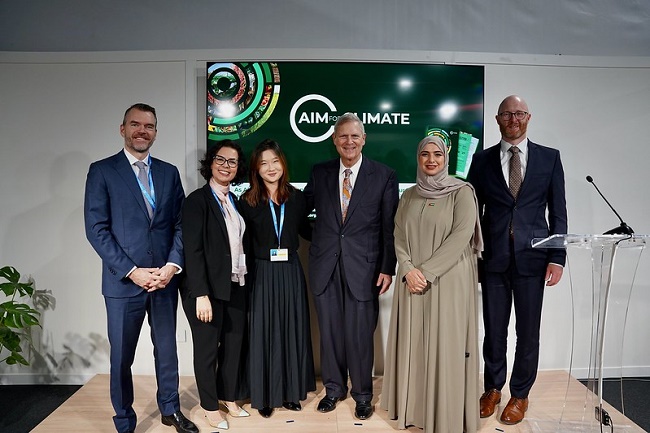The Agriculture Innovation Mission for Climate (AIM for Climate), said to be the largest global coalition at the intersection of food security and climate change, spearheaded by the United Arab Emirates and the United States, on Monday, November 18, 2024, announced nearly double the investments, partners, and Innovation Sprints in transformative climate-smart agriculture and food systems innovation.

The announcements were made at the 29th United Nations Climate Change Conference (COP29), hosted in Baku, Azerbaijan under the theme “In Solidarity for a Green World.”
AIM for Climate partners turn ambition into action, driving climate-smart agriculture and food systems innovation to tackle the climate crisis, build resilience, and deliver co-benefits for people and the planet.
Building on a record year at COP28, investments have surged from $17 billion to an unprecedented $29.2 billion, over a 2020 baseline. The addition of 52 new Innovation Sprints, bringing the total to 129, further underscores AIM for Climate’s transformative impact. With AIM for Climate expanding from 600 to over 800 partners worldwide, the initiative reflects the urgency and strength of its mission.
The investment increase comprises $16.7 billion from 56 Government Partners including Nigeria and $12.5 billion from the accelerated investments of 129 Innovation Sprint Partners, driving change in climate-smart agriculture and food systems. The growing number of high-impact, private-sector, and public-private partnership-led projects deliver solutions to today’s climate and food challenges.
Aligned with COP 29’s priorities of climate finance, emission reduction, and developing adaptive solutions for climate-related loss and damage, these initiatives focus on one or more of AIM for Climate’s focal areas: Smallholder Farmers in Low- and Middle-Income Countries; Emerging Technologies; Agroecological Research; and Methane Reduction.
AIM for Climate’s impact in Nigeria is substantial, with increased investments being directed toward climate-smart agriculture and food systems innovation through new Innovation Sprints active in the region. These investments demonstrate AIM for Climate’s commitment to supporting climate resilience and food security in Nigeria and beyond.
